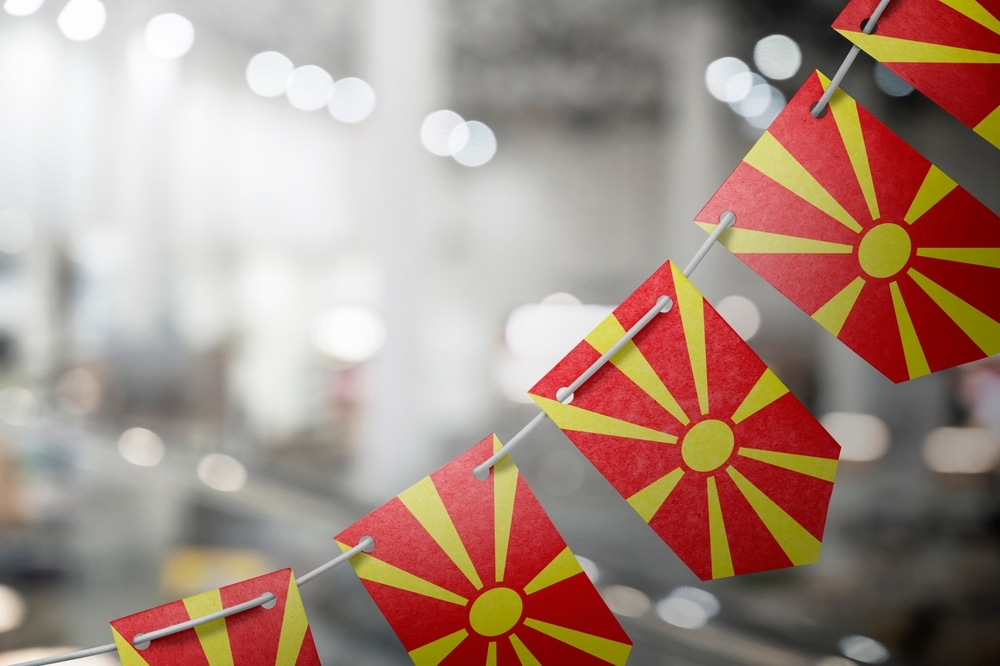Kosovo: local elections, global effects
The first round of the local elections in Kosovo shows no major winners, yet the results could influence the next national elections. The calling of early elections is now seen as a possible option

shutterstock_2657720635
© Ade Lukmanul Hakimmm/Shutterstock
Kosovo held regular local elections on Sunday amid a continuing political crisis at the central level. According to preliminary data from the Central Election Commission (CEC), the race for mayors has concluded in 21 municipalities, while 17 municipalities will have a runoff.
The Vetëvendosje Movement (LVV) leads with around 27 percent of votes nationwide, if votes for its mayoral candidates in all municipalities are combined, while the Democratic Party of Kosovo (PDK) leads in the municipal assemblies.
Political analyst Dritëro Arifi says there were no major winners in this process.
“The result was a surprise, but not a big one. There were interesting subtleties in the parties’ expansions or contractions — not in the number of votes, but on the political map,” Arifi says.
Who won in which area?
LVV won outright in three municipalities — Podujeva, Kamenica, and Shtime. It came first in two municipalities heading to runoffs, Gjilan and Fushë-Kosovë, and second in ten municipalities, including Prishtina, Prizren, South Mitrovica, Gjakova, Peja, Kaçanik, Obiliq, Rahovec, Viti, and Vushtrri.
LVV, the party led by Albin Kurti, has made progress compared to the 2021 local elections. Four years ago, it did not win any municipality in the first round, while this time it has three outright victories, even though the number of municipalities where it ranks first has dropped from five to two. Meanwhile, the number of municipalities where it ranks second has increased from eight to ten.
The Democratic Party of Kosovo (PDK), on the other hand, won outright in three municipalities — Skenderaj, Ferizaj, and Hani i Elezit. It came first in four municipalities going to runoffs — South Mitrovica, Kaçanik, Prizren, and Vushtrri — and second in two municipalities, Dragash and Klinë.
PDK has seen a decline compared to 2021. One of its biggest losses came in Drenas, a municipality the party of Memli Krasniqi had traditionally won since the post-war period.
PDK’s outright victories have fallen from four municipalities to three, the municipalities where it came first have decreased from six to four, while the municipalities where it is in second place went from four to two.
Meanwhile, the Democratic League of Kosovo (LDK) won outright in two municipalities, Istog and Lipjan. It came first in six municipalities going to runoffs — Prishtina, Peja, Obiliq, Viti, Dragash, and Junik — and second in three: Gjilan, Fushë-Kosovë, and Suhareka.
The party led by Lumir Abdixhiku has maintained nearly the same results compared to 2021.
The number of municipalities won outright remains unchanged at two, while the number of municipalities where it goes to a runoff as the leading party has risen from five to six. Meanwhile, this year it ranks second in three municipalities, compared to four in 2021.
The Alliance for the Future of Kosovo (AAK) managed to win outright only in Deçan. It came first in four municipalities heading to runoffs — Gjakova, Klinë, Rahovec, and Suhareka — and ranked second in one, Junik.
AAK remains at a similar level to the previous elections. Outright wins dropped from two to one, while the number of municipalities where it came first remained unchanged at four.
Nine of the ten Serb-majority municipalities were won by Srpska Lista (Serb List), except for Klokot, which will go to a runoff, though the party currently leads there.
In the October 12 elections, 39.58 percent of the over 2 million eligible voters cast their ballots — about 3.4 percent fewer than in the previous local elections.
The capital heads to a runoff
As expected, a close and interesting race unfolded in Prishtina, resulting in the capital heading to a runoff.
According to preliminary results, the current mayor, Përparim Rama from LDK, came first with 33.76%, followed by LVV’s candidate Hajrulla Çeku with 33.05%, while PDK’s Uran Ismaili placed third with 27.77%.
Local and central levels
According to analyst Dritëro Arifi, LVV’s result gives the party positive momentum. He sees the October 12 local elections as a test and a prelude to potential early parliamentary elections.
“In these circumstances, Mr. Albin Kurti will condition the other parties to cooperate with him in forming the government. If they are unwilling to do so on Kurti’s terms, then LVV may send the country to early elections by refusing to form the government within the legal timeframe,” Arifi emphasizes, adding that Kurti is not interested in leading a weak government.
Following the latest ruling by the Constitutional Court, last weekend the Kosovo Assembly elected Nenad Rašić as one of its deputy speakers from the Serb community, after none of the Serb List (SL) candidates received support from Albanian parties. The SL called Rašić’s election unconstitutional.
Afterward, Speaker Dimal Basha stated that with the election of the fifth deputy speaker, the Assembly had completed its constitution.
One day after this session, President Vjosa Osmani nominated Albin Kurti to form the government, as the leader of the party that won the most votes in the February 9, 2025 parliamentary elections.
According to Kosovo’s Constitution, the nominee to form the government — Kurti — is required, within no later than 15 days from the date of nomination, to present to the Assembly for approval the composition and program of the government.
Kurti, who currently serves as acting prime minister, has said that this week he will begin discussions on forming the new government.
Tag:







